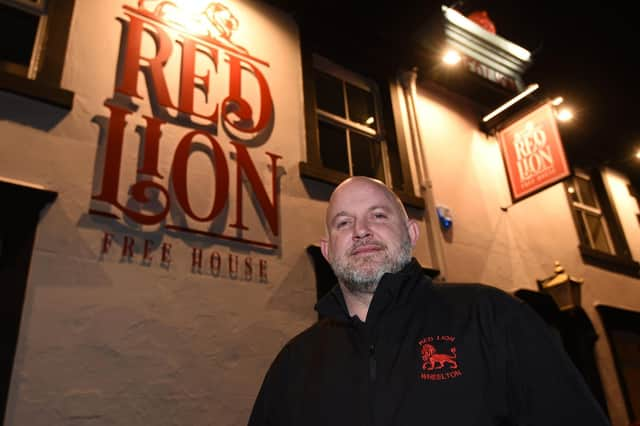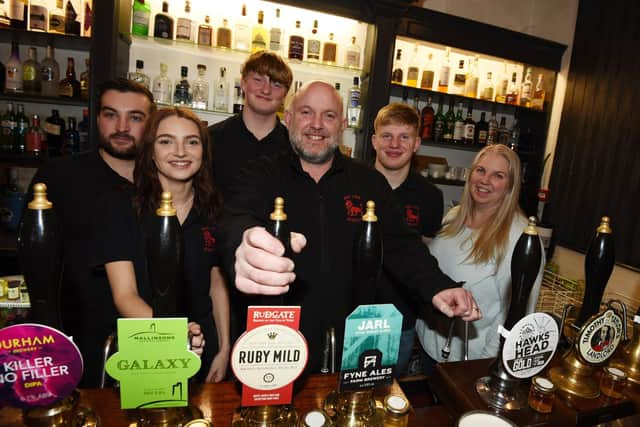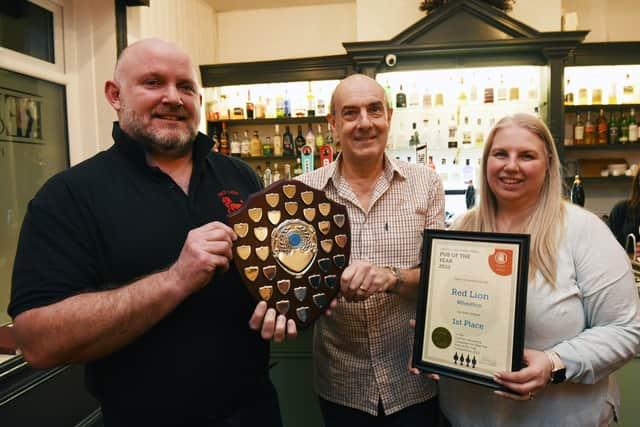Campaign for Real Ale Central Lancashire: Saving proper Great British ale one pint at a time


"When I started beer-drinking in the early '70s, the scene was very different to now," says Adrian Smith, chairman of Camra Central Lancashire. "The big six national breweries dominated the scene and brewed the vast bulk of the beer, most of it pretty undrinkable - it was gassy, full of chemicals, and lacked taste, but had a load of marketing behind it.
"Older beer-drinkers thought 'let's bring back the old ways', which is how Camra started," adds Adrian, 66, who is from South London but who has lived in Chorley since 2001. "Having started out drinking whatever pubs served, I discovered a pub selling locally-brewed beer, which was far better than anything I'd ever tried. I was hooked."
Advertisement
Hide AdAdvertisement
Hide AdPromoting real ale and publicising where it can be found, Camra also selects pubs for Camra's national Good Beer Guide and runs its own free magazine named Ale Cry dating back to 1978. What's more, it fights to save pubs and breweries from closure so as to preserve the character of the traditional British pub with all its cultural, historical, and architectural value.


But what makes British pub culture special, I ask Adrian.
"It's the fact that proper pubs are inclusive," says Adrian, himself a member of Camra since the early '80s and part of the Central Lancs branch since 2013. "Pubs are a place where people come together: sit in any local boozer on a regular basis and you'll see the same faces. That community is a huge part of pub culture and helping preserve it makes me proud.
"But it's been difficult," he adds. "Pubs are owned by big companies and we've seen them sold off, seen classic interiors ripped out, and identikit colour schemes implemented alongside identikit menus. It's predictable - sometimes, you walk into a pub and know which company owns it from the beers on tap. Pubs which remain free of that have individuality and character."
It's for that reason that Camra Central Lancs, which began life in 1973 and covers Preston, Chorley, and South Ribble, was so concerned for the fate of their favourite independent establishments during the pandemic. A membership of just shy of 1,300 people were worried that a hefty chunck of their patch's 313 real ale pubs would simply wither on the vine.
Advertisement
Hide AdAdvertisement
Hide Ad

"Not to get political, but, as good as the government is at putting a positive spin on things, people in the pub industry itself were saying that the compensation for businesses forced to shut for the common good during Covid just wasn't adequate," explains Adrian. "Sure, the Chancellor saying x-billion pounds sounds great, but landlords have to pay rent and fixed overheads.
"When those costs amount to more than the grants businesses are receiving at a time when they're also topping up furlough payments, is it any wonder that there was concern?," he continues. "Thankfully, very few were actually unable to reopen, but we're now starting to see some close because they're running out of money for a number of reasons.
"Pub-going tends to be an older person's pastime and those people are naturally more concerned about the impact of Covid," Adrian says. "On top of that, there's the recent cost-of-living increases which means less disposable income and, basically, lots of local pubs' core client base - their bread and butter - have gotten used to drinking their favourite tipple at home.
"It's the perfect storm," says Adrian. "Pubs which would otherwise be perfectly viable have ceased to be simply because of the way things have gone."
If it's one thing Brits can rally behind, however, it's a call to save the Great British pub.
Comment Guidelines
National World encourages reader discussion on our stories. User feedback, insights and back-and-forth exchanges add a rich layer of context to reporting. Please review our Community Guidelines before commenting.